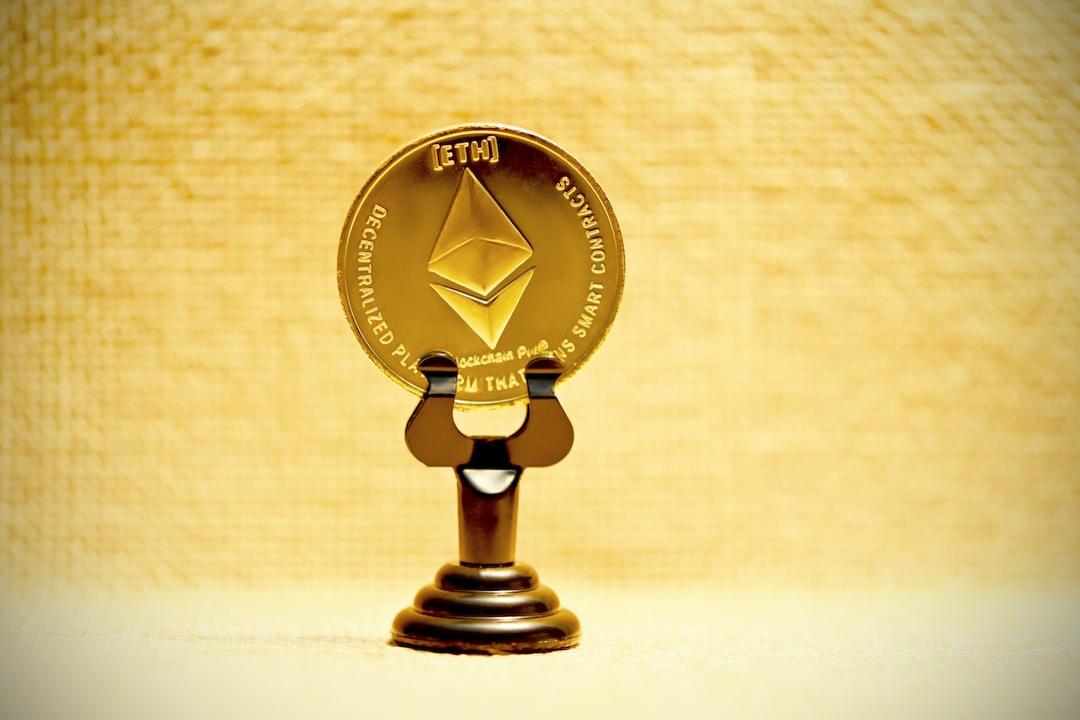Taiwan’s Top Economic Scholars and Financial Experts Analyze Bitcoin — Should Bitcoin Be Included in Foreign Exchange Reserves? Is Bitcoin Disrupting the Global Financial Order?
Trump’s inclusion of Bitcoin in the U.S. strategic reserves poses challenges for central banks and public sectors worldwide regarding monetary policy and fiscal strategy. In light of this global transformation of the monetary system, this forum, hosted by the Bitcoin and Virtual Asset Development Association and co-organized by the New Generation Financial Foundation, has specially invited BitoPro, MaiCoin, the Citic Financial Management Institute, and Ogo Blockchain Consulting. For the first time in history, it gathered three of Taiwan’s leading economists: Professor Hsu Chia-Tung, Chairman Wu Chung-Shu, and Chair Professor Lin Chien-Fu, alongside monetary expert Professor Liu Yi-Ju and financial expert Chairman Chen Chong, along with experts on virtual assets, to conduct an in-depth analysis of Bitcoin as a national reserve and its implications for future financial markets. This is Taiwan’s first comprehensive discussion on the application of Bitcoin at the national level and offers forward-looking insights into regulatory strategies for the digital asset era.
Key Discussions of the Forum:
The forum commenced with a keynote speech from Professor Chang Chen-Shan, Director of the Securities and Futures Bureau of the Financial Supervisory Commission, explaining the Commission’s focus on the four phases of virtual asset regulation in Taiwan and its commitment to this issue.
Former Premier Professor Chen Chong delivered a special lecture discussing the potential opportunities and impacts of digital assets in the current geopolitical and economic landscape, highlighting Trump’s proactive stance towards virtual assets and emphasizing that digital assets are “weapons” that Taiwan should cautiously assess to keep pace with international trends.
The first keynote speech was given by former Minister of Finance Professor Liu Yi-Ju, who analyzed the definitions and principles of national reserves from a monetary perspective, as well as the feasibility of Bitcoin as a national reserve. Professor Liu noted that Bitcoin is seen as a revolutionary asset in the financial system, especially when public trust in the government falters, making it a safe-haven choice. Stablecoins, on the other hand, are perceived as strategic tools to reinforce the international status of the U.S. dollar.
The first panel discussion, hosted by Professor Liu Yi-Ju, continued the analysis of the keynote speech. It included discussions with Professor Hsu Chia-Tung, Chairman Wu Chung-Shu, Senior Consultant Li Jian-Si, and Lawyer Lin Hong-Yu, Chairman of the Bitcoin and Virtual Currency Development Association, to explore the nature of Bitcoin and its potential as a specific form of foreign exchange reserve. Chairman Wu pointed out that due to Bitcoin’s high volatility, it is currently unsuitable for use as currency; Professor Liu Yi-Ju argued that the development of stablecoins is indirectly promoting Bitcoin as a medium of exchange. Senior Consultant Li emphasized that the Bitcoin system is highly stable, with a fixed total supply that will not change due to external factors. Chairman Lin Hong-Yu analyzed Bitcoin’s market value, asserting that when Bitcoin’s price remains at $90,000, its market value is equivalent to that of the New Taiwan Dollar, highlighting Bitcoin’s high divisibility.

The second panel focused on Bitcoin’s intrinsic value, featuring Professor Hsu Pei-Ling, Director of the Institute of Technology and Finance at the Citic Financial Management Institute, along with Liu Yi-Cheng, CTO of Citic Financial Holdings, Liu Shih-Wei, Founder and CEO of MaiCoin, and Zheng Guang-Tai, Founder and CEO of BitoPro. Liu Yi-Cheng stated that since Bitcoin does not generate revenue, it should be viewed as a commodity, whereas USDT and USDC are backed by U.S. Treasury bonds and generate returns, making them easier to understand. He further pointed out that U.S. institutions have begun suggesting that a portion of Bitcoin should be allocated in asset portfolios to enhance returns.
Liu Shih-Wei analyzed that U.S. Treasury bonds require high-interest payments, and if Taiwan plans to issue stablecoins, it can serve the U.S. market by using the New Taiwan Dollar as collateral or reserves, even buying U.S. Treasury bonds with New Taiwan Dollars. Zheng Guang-Tai emphasized that regulatory issues are still the main challenges facing exchanges.

Legislator Dr. Ko Jui-Chun shared his experience of attending Trump’s inauguration and reflected on the direction of U.S. virtual asset policies. Bitcoin is redefining value standards, and the current financial system still suffers from a lack of transparency. The development of the digital economy is expected to surpass the physical economy. Regarding Taiwan’s policy direction, he suggested referencing the U.S. Strategic Reserve Act to assess the feasibility of Bitcoin as a national reserve asset to seize the opportunity of global financial transformation.

The third panel shifted focus to the central bank’s ongoing discussions concerning stablecoin adoption policies. This discussion included Chairman Chen Chong of the New Generation Financial Foundation, Dai Chi-Chuan, former Chairman of EasyCard Corporation and current President of Technology Report, Vice President Wen Hong-Jun of the Taiwan Fintech Association, and Professor Lin Meng-Chiang, Director of the Department of Financial Technology Applications at Ming Chuan University. They discussed the opportunities and challenges posed by stablecoins in the context of Taiwan and other governments’ common trends. Vice President Wen pointed out that stablecoins are digital tokens linked to fiat currencies, but both Taiwan and the U.S. are progressing slowly with relevant regulations. Notably, the world’s largest stablecoin Tether (USDT) lacks formal compliance regulation in the U.S., where authorities have taken a permissive stance likely due to Tether’s stabilizing effect on the international status of the dollar. In contrast, Circle actively cooperates with regulators to seek a legitimate and compliant development path.
Additionally, market observations indicate that many traditional financial institutions are exploring the potential of asset tokenization, with stablecoins viewed as a crucial entry point for Web3. Currently, the global scale of real-world assets (RWA) reaches $900 trillion, with its value foundation relying on the approximately $90 trillion total issuance of global M2. Professor Lin Meng-Chiang warned that if Taiwan fails to issue a central bank digital currency (CBDC) or a competitive stablecoin in the future, it risks losing its influence in the on-chain financial market, subsequently affecting its global competitiveness in the digital economy.

The fourth panel featured discussions by Wu De-Wei, Partner at Acorn Pacific Ventures, Hu Yi-Tian, Co-Founder and CEO of Yuanbo Capital, Professor Lin Chien-Fu, Chief Economist at Citic Financial Holdings, and Jian Shu-Yong, Legal Compliance Manager at Binance International, speculating on the international market for virtual assets and the latest trends in Bitcoin. Expert opinions varied; Economist Lin Chien-Fu cautioned that the regulatory issues surrounding stablecoins and CBDCs are under scrutiny concerning the future development of cryptocurrencies. He noted that cryptocurrencies have become a global trend, with the U.S. attempting to enhance international competitiveness by introducing cryptocurrencies and cutting-edge technologies such as AI. He emphasized that compared to CBDCs, he supports stablecoins more, as they can flow freely on the blockchain while maintaining privacy, whereas CBDCs may be used by governments to monitor financial flows, infringing on personal privacy rights.
On the other hand, Hu Yi-Tian pointed out that the U.S. operates similarly to a corporate model, requiring efficient management, and suggested that Bitcoin could serve as a strategic asset for the country, proposing potential solutions to alleviate national debt pressure through debt-to-equity swaps.
Binance International’s compliance manager Jian Shu-Yong mentioned that cryptocurrencies provide young generations with opportunities to transcend class barriers. He referred to the recent introduction of the ASPIRe regulatory framework by the Hong Kong Securities and Futures Commission, aiming to establish a global order book mechanism to enhance market liquidity and further solidify Hong Kong’s status as an international cryptocurrency financial center.

This article is provided by official sources and does not represent the position or investment advice of this site. Readers should conduct their own careful evaluations.

